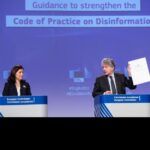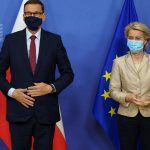The European Commission has published the first annual self-assessment reports by Facebook, Google, Microsoft, Mozilla, Twitter and 7 European trade associations under the Code of Practice on Disinformation. The reports by the signatories of the Code set out the progress made over the past year in the fight against online disinformation. The self-regulatory Code of Practice was launched in October 2018 and is an important pillar of the Action Plan against Disinformation.
Findings from the self-assessment reports
- Compared to October 2018, the signatories to the Code of Practice indicate improved transparency. There is a closer dialogue with platforms as regards their policies against disinformation.
- While progress has been reported on the commitments monitored by the Commission from January to May ahead of the 2019 European Parliament elections, less is reported on the implementation of the commitments to empower consumers and the research community. The provision of data and search tools is still episodic and arbitrary and does not respond to the needs of researchers for independent scrutiny.
- The scope of actions undertaken by each platform to implement their commitments vary significantly. Similarly, differences in implementation of platform policy, cooperation with stakeholders and sensitivity to electoral contexts persist across Member States.
- The reports provide information on policies implementing the Code, including EU-specific metrics. The consistency and level of detail varies. The metrics provided are mainly output indicators, e.g. number of accounts taken down.
Next steps
The Commission’s overall assessment of the effectiveness of the Code of Practice is ongoing. In addition to the self-assessments by the signatories, the Commission will take into account:
- Input from the European Regulators Group for Audiovisual Services (ERGA) as foreseen in the Action Plan against Disinformation.
- An evaluation from a third party organisation selected by the signatories, as foreseen under the Code of Practice.
- An assessment from an independent consultant engaged by the Commission and expected for early 2020.
- The Commission will present a report on the 2019 elections to the European Parliament in the coming months.
On this basis, the Commission will present its comprehensive assessment in early 2020. Should the results under the Code prove unsatisfactory, the Commission may propose further measures, including of a regulatory nature.
Background
The European Union has been actively tackling disinformation since 2015. Following a decision of the European Council in March 2015, in order to challenge Russia’s ongoing disinformation campaigns, the East StratCom Task Force in the European External Action Service (EEAS) was set up. In 2016, the Joint Framework on countering hybrid threats was adopted, followed by the Joint Communication on increasing resilience and bolstering capabilities to address hybrid threats in 2018.
In April 2018, the Commission outlined a European approach and self-regulatory tools to tackle disinformation online. In October 2018, the Code of Practice was signed by Facebook, Google, Twitter and Mozilla as well as trade associations representing online platforms, the advertising industry, and advertisers. The self-assessments published today follow upon baseline reports submitted in January 2019, as well as monthly reporting by Facebook, Google and Twitter from January through May 2019 focussing on the implementation of commitments pertinent to the integrity of the European elections. Microsoft also joined the Code in 2019 as a signatory.
In a Joint Communication published in June 2019, the Commission and the High Representative reported on the progress achieved in the fight against disinformation and the main lessons drawn from the European elections. The report highlighted that while the elections in May were clearly not free from disinformation the actions taken by the EU – together with numerous journalists, fact-checkers, platforms, national authorities, researchers and civil society – have contributed to narrow down the space for foreign interference as well as coordinated campaigns to manipulate public opinion.
In addition to the measures taken against disinformation, the Commission had already in May 2016 agreed with online platforms an action to counter illegal hate speech online: the EU Code of conduct concentrates on content that is against the law.
More Information
Self-assessments and analytical note
Factsheet: Action Plan against Disinformation – Report on Progress
Code of Practice – Questions and Answers
Joint report on the implementation of the Action Plan against Disinformation
Action Plan against Disinformation







Leave a Reply